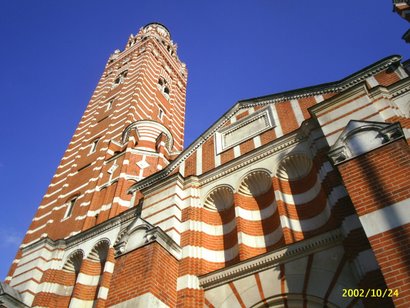The Hardest Days

Hard as it is, nevertheless it is right that we conclude our celebrations. What makes events like Christmas so important is the fact that they do not endure for the whole year, that they are highlights, occasions to anticipate, and later miss. A celebration that never concludes creases to be a celebration, for there is nothing out of the ordinary about it. Rather than adorning our life, it becomes a way of life.
That said, however, in a way our celebration does continue. The 'ordinary time' of the Church's calendar is a misnomer; all the year continues the celebration of the Incarnation of the Lord. Now, however, it is time to unfold the significance of that great event in our daily lives, to reflect in our regular activities our new understanding of the relationship between God and man. The decorations are stowed, the Christmas trees are discarded - but in our hearts there is a joy and a glory unbounded by the calendar. God is with us, and Jesus accompanies us into the great adventure of our daily activity.

4 comments:
Now that The Ephiphany will always be on a Sunday (regardless of whether 6 January is Saturday or Monday) can you tell me whether The Baptism of Our Lord will always be on the day after(Monday) as traditionally this is celebrated on the second Sunday after Christmas (Holy Family being the first Sunday)?
I must say that I feel that The Baptism will get overlooked by the majority of parishioners if it is celebrated on a Monday - especially those who can not get to Mass because of work and other "weekday" committments.
Many thanks
I don't really know the answer to this, but presume you are correct, and that the Baptism will now be celebrated on the Monday following Epiphany Sunday. I agree that it will mean a loss of a wonderful feast - another sad consequence of this move.
From my reading of the rubrics, things are not that straightforward!
The Feast of the Holy Family is celebrated on the Sunday within the Octave of Christmas, unless Christmas Day falls on a Sunday when it is celebrated on Friday 30 December, and the Octave Day of Christmas - Sunday 1 January is kept as the Solemnity of Mary, Mother of God.
We (in England and Wales) now celebrate the Solemnity of the Epiphany on the Second Sunday after Christmas, which falls between 2 and 8 January. If the Epiphany falls between 2 and 6 January, then Christmastide extends until the following Sunday (falling between 9 and 13 January) and is celebrated as the Baptism of the Lord. Only if Epiphany falls on Sunday 7 or Sunday 8 January does the Feast of the Baptism get omitted (unlikely, but that is what the rubric states!) or celebrated on Monday 8 or Monday 9 January with a swift return to Ordinary Time (as happened this year).
In sum, I reckon we will go on celebrating the Baptism of the Lord on a Sunday in five years out of seven.
Dear Administrator - I know that the Archbishop of Canterbury is able to award Lambeth Doctorates, and should be grateful if you would consider me for a Westminster Doctorate - should my analysis prove correct!
A doctorate is on its way, Peter. Thank you for this clarification.
Post a Comment